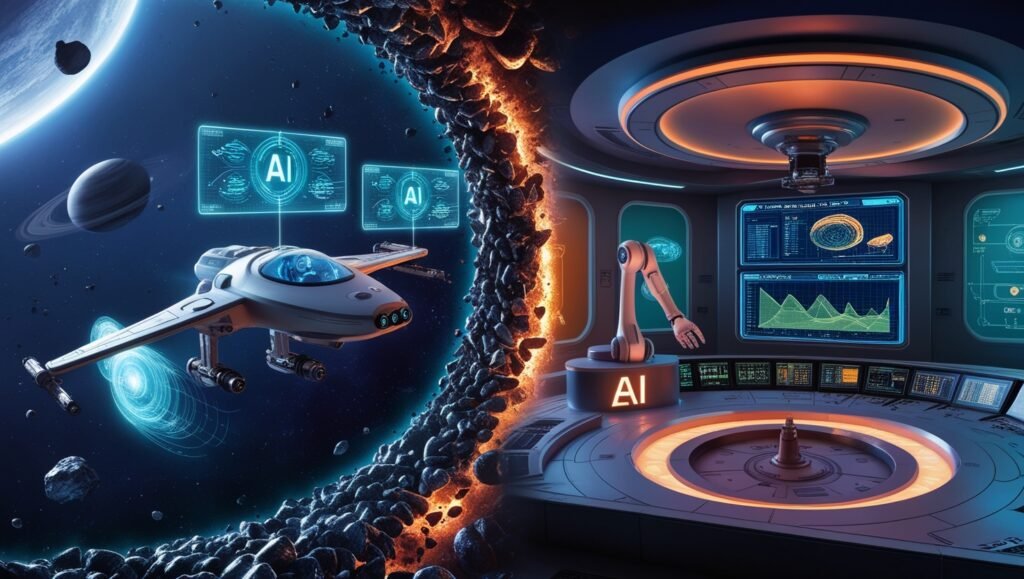Space is something that humanity has always found fascinating and compelling to explore it. Now with the advent of artificial intelligence (AI), human kind will be entering an entirely new stage of space research. AI, while assisting the astronauts, plays a pivotal role in unraveling the mysteries of the cosmos. Here’s how AI is making space exploration tomorrow and paving a way for discovering groundbreaking discoveries:
Role of AI in Space Missions

AI technologies have revolutionized space exploration by making it more efficient and risk-free. From autonomous navigation of spacecraft to the analysis of huge amounts of data, AI has become indispensable. NASA and other space agencies are using machine learning algorithms for:
Autonomous Navigation: AI systems allow spacecraft to make real-time decisions, avoiding obstacles and optimizing trajectories. This capability is critical for missions to distant planets and moons.
Data Analysis: The space mission generates thousands of terabytes of data daily. AI helps process these data, identifying patterns and anomalies that might otherwise escape human researchers.
Predictive Maintenance: AI algorithms predict potential equipment failures and eliminate them, thus prolonging mission lifespan and saving money.
AI-Powered Rovers and Robots

The Mars rovers Perseverance and Curiosity are perhaps the best examples of how AI is in action. Deployed with improved AI systems, these rovers can:
- Fully automate the navigation process for difficult terrains.
- Conduct scientific experiments and transmit the data back to Earth.
- Determine areas of interest to further explore.
Future missions to the Moon and beyond are also in development with AI-powered robots that will help in the construction of habitats, mining of resources, and other crucial aspects for long-term space missions.
AI and Exoplanet Discovery

One of the most exciting applications of AI is in the search for exoplanets. Machine learning algorithms analyze data from telescopes like Kepler and TESS, identifying potential exoplanets by detecting minute changes in starlight. AI has already contributed to discovering thousands of exoplanets, bringing us closer to finding Earth-like worlds.
AI in Spacecraft Design and Mission Planning

Designing spacecraft and planning missions are complex processes. AI simplifies these tasks by:
- Simulation of various mission scenarios.
- Optimization of space vehicle designs for certain goals.
- Improving mission planning with predictive models.
Challenges and Future Prospects

Despite all the promises that AI brings, there are challenges. One such challenge is to ensure that the AI system functions reliably in a harsh space environment. There is also an ethical consideration in how AI would make decisions.
It is in the near future that AI will be pivotal in ambitious projects such as colonizing Mars, exploring asteroids, and even interstellar travel. As the technologies of AI continue to advance, the scope for space exploration is limitless.
Conclusion
AI and space exploration is a match made in the stars. Combining human ingenuity with machine intelligence is unlocking new horizons and pushing the boundaries of what is possible. The integration of AI in space missions promises not only to deepen our understanding of the universe but also to inspire future generations to reach for the stars.
For more insights into the latest in technology, visit AI TECH MENTOR regularly and stay updated!



